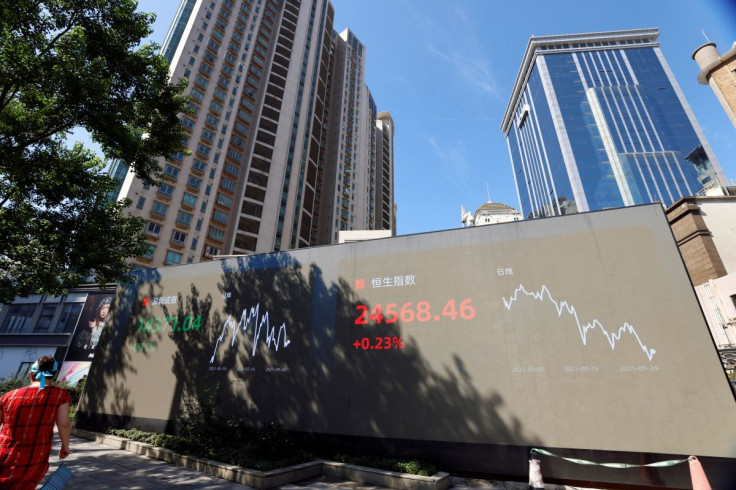Asian Shares Slip On Slowdown Fears; Oil Slide Deepens

Asian shares fell for a second straight session on Friday as worries about the Russia-Ukraine war and risks of recession punctured their rally, while plans to release oil reserves had crude prices heading for a sharp weekly drop.
In Tokyo, the Nikkei was down 0.4% and set for a 1.5% weekly fall, while MSCI's broadest index of Asia-Pacific shares outside Japan was 0.6% lower. S&P 500 futures and European futures were last up 0.2%.
Oil prices slid further following Thursday's announcement of huge releases from U.S. strategic reserves and ahead of a Friday meeting of oil consuming nations to discuss their own reserve releases.
U.S. crude futures dipped below $100 to $98.93 a barrel and Brent futures were down 1% to $103.49 a barrel. Oil is on course for a 13% weekly fall - the sharpest in almost two years, after an earlier surge due largely to the Ukraine conflict had seen prices rise by more than 30%. [O/R]
Investors, however, were still fretting over whether the inflationary pressures would force central banks into aggressive rate hikes, potentially triggering recessions.
On Thursday, Russian President Vladimir Putin had also struck back at Western sanctions on Moscow, threatening to halt contracts supplying Europe with a third of its gas unless they are paid in roubles. The move prompted Germany, the most reliant on Russian gas, to accuse him of "blackmail" as it activated an emergency plan that could lead to rationing.
"The Ukraine invasion re-energised the commodity price complex, pushing into the future the previously anticipated falls in inflation as baseline effects kicked in," said Jeffrey Halley, senior analyst at brokerage OANDA.
"The Federal Reserve may engage in a series of 0.5% rate hikes that will change the investing landscape profoundly for the world. Other countries may also be forced to play vigorous catchup on monetary policy to rein in soaring inflation."
Supply disruption and surging raw material costs drove Japanese business confidence to a nine-month low last quarter, data on Friday showed.
China's factory activity, meanwhile, slumped at the fastest pace in two years in March, while activity has also slowed in South Korea, Taiwan, Vietnam and Malaysia.
Hong Kong's Hang Seng dipped 0.8%, while Seoul's Kospi lost about 0.6%. Chinese blue-chips turned around from a lower open to rise 0.7%, helped by hopes for policy easing. [.HK][.KS]
MSCI's global share index, and U.S. and European shares all notched their biggest quarterly drops since the outbreak of the COVID-19 pandemic in 2020 in the quarter that ended on March 31.
But the quarterly drop in U.S. shares masked a late comeback in the S&P 500 index, which rallied from a near-13% decline to finish the quarter off about 5%.
While the rally in equities fizzled, the bond market was bracing for economic growth to take a hit. The closely watched spread between U.S. two-year and 10-year notes is nearly zero.
An inversion in this part of the U.S. yield curve is viewed as a reliable signal that a recession may follow in one to two years. Benchmark 10-year notes last yielded 2.3785%, while the two-year yield was a 2.3733%. [US/]
Ahead, investors will be watching U.S. March jobs data later on Friday for indications of wage inflation, in addition to the headline jobs figure.
The dollar, which has benefited from safe-haven flows and expectations of rising U.S. rates, remained firm on Friday. Against a basket of peers, the greenback was up 0.2% at 98.496, and up 0.55% against the yen at 122.28. [FRX/]
The euro <EUR=> fell slightly to $1.1055.
Gold was stable after its biggest quarterly gain in two years. Spot gold was last quoted at $1,937.05 per ounce. [GOL/]
© Copyright Thomson Reuters 2024. All rights reserved.



















